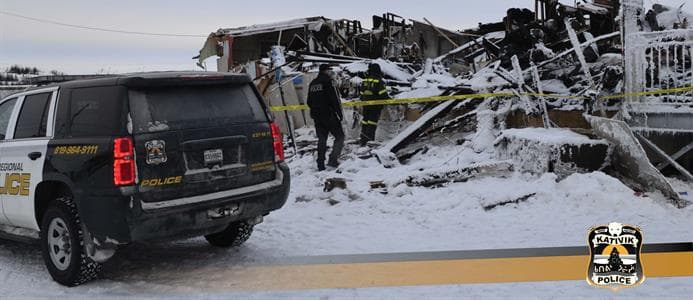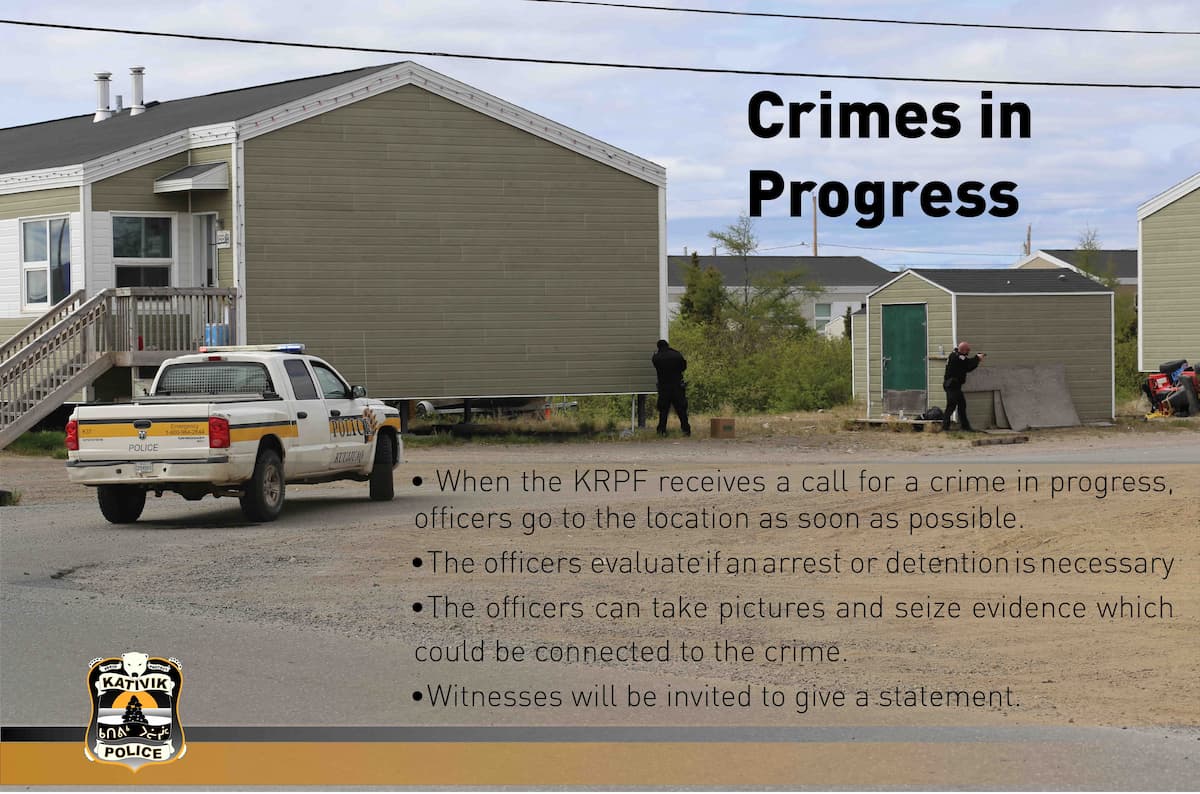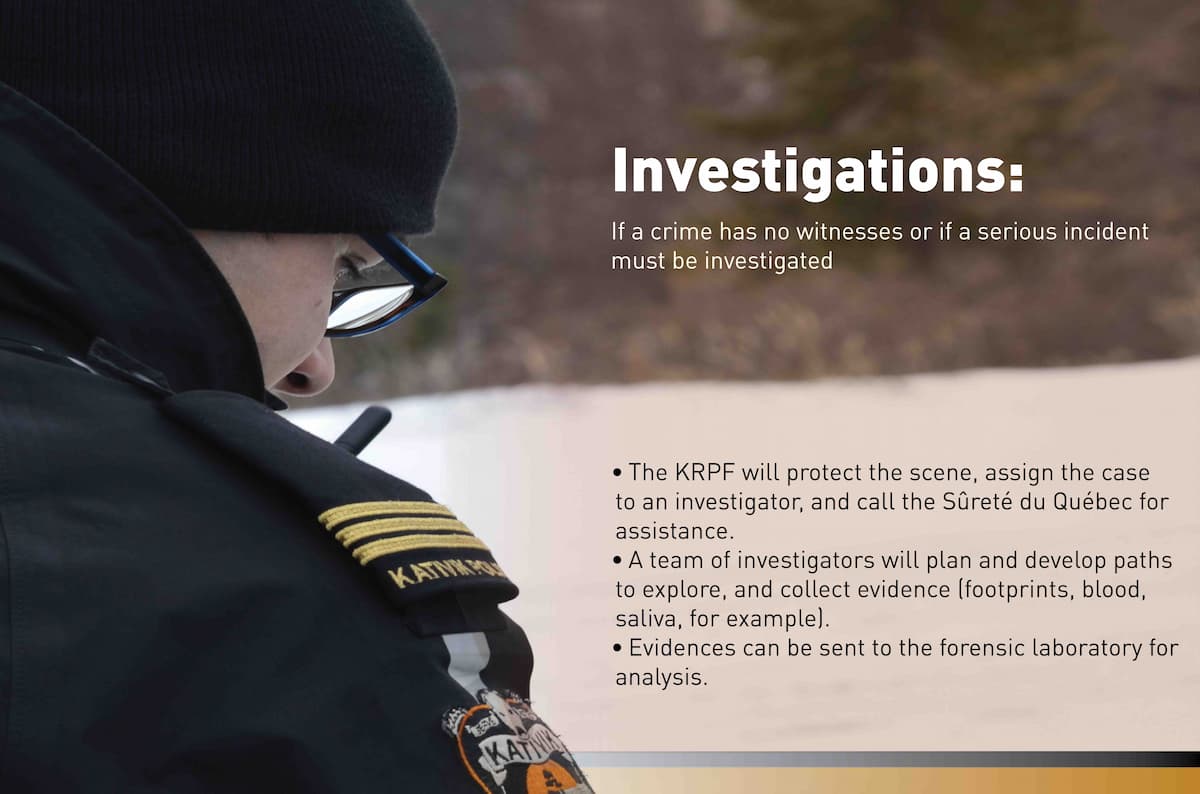When a Crime Is Committed

When a crime is committed, KRPF police officers must protect the public and determine who committed the crime so that the offender can be prosecuted and brought to justice. How do the officers go about investigating these crimes?
Crimes in Progress
As soon as the KRPF receive a call that a crime is in progress, officers go to the location as soon as possible.
The officers may be able to immediately deal with the alleged offender. The officers will then evaluate whether or not an arrest and/or detention are necessary and being the alleged offender to the police station if necessary.
Before leaving the scene of the crime, the police will often take pictures and seize as evidence any items they think are connected to the crime. Almost everyone who was at the scene will be invited to give a statement of their personal observations and take the names and contact information of any other potential witnesses. Any items that might have been taken from the crime scene by witnesses are given to police officers.
Unsolved Crimes or Situations that must be Investigated
If a crime was not observed in progress or a particularly serious incident that must be investigated, the KRPF will protect the scene, assign the case to an investigator and will call upon the Sureté du Québec major crime unit for assistance.
A team of investigators will develop a plan and identify a list of paths to explore. The investigators may collect forensic evidence such as fingerprints, blood, or saliva found at the scene and sends them to the forensic laboratory for analysis. They will also speak to witnesses to try to piece together what happened.
At all times, the police officers must respect the Canadian Charter of Rights and Freedoms and the Canadian Criminal Code's strict rules regarding the arrest of a suspect and search and seizure procedures. This means that generally, if the officers want to search any private property, they must first obtain a search warrant from a Justice which shows that they have reasonable grounds to believe that they will find evidence that will help solve the crime.

